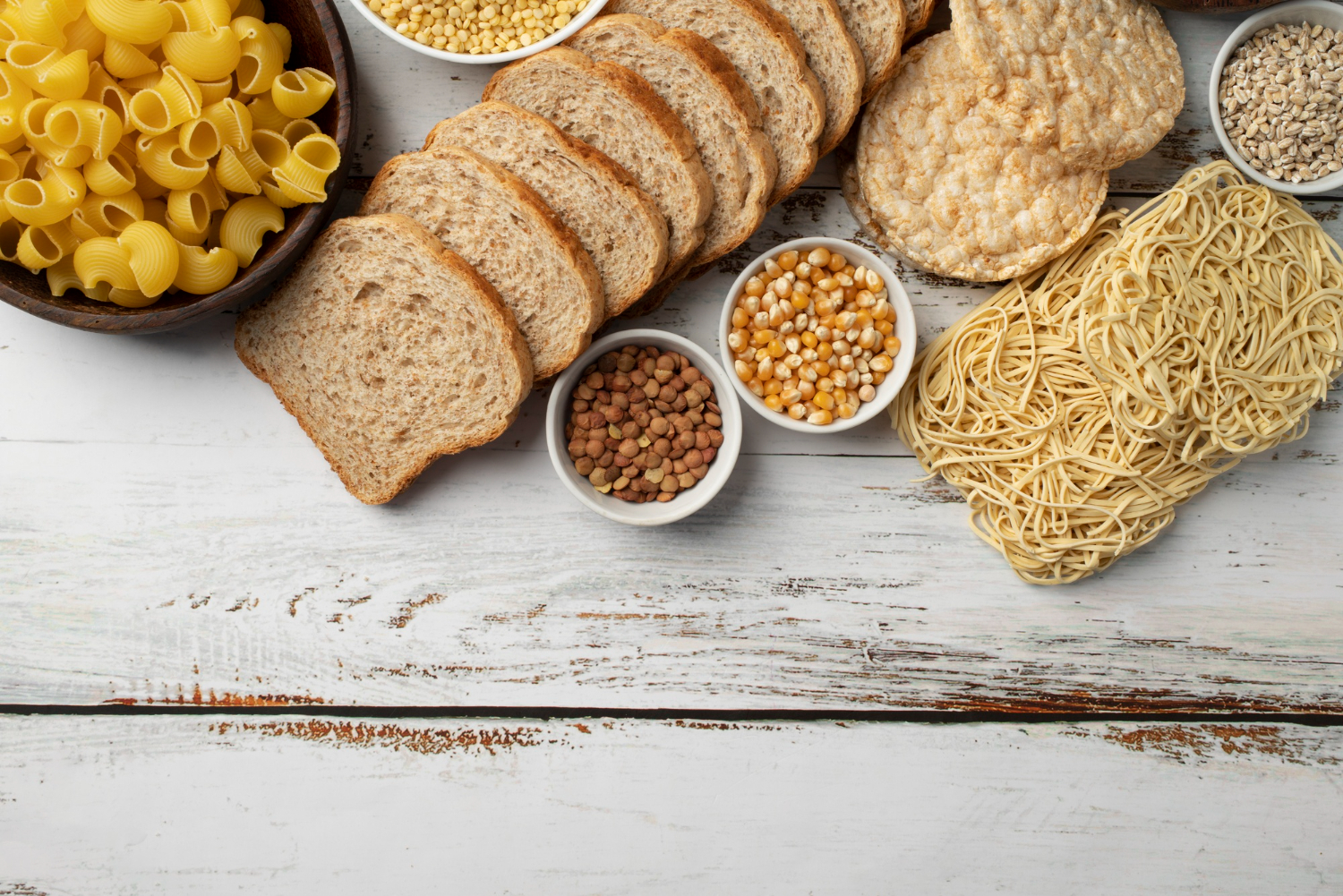

Gluten—a protein found in wheat, barley, and rye—is a pervasive ingredient in modern diets, famous for giving breads and pastas their appealing textures. But beyond its culinary benefits, gluten has become a topic of health concern, especially regarding its relationship with gut health. The rise of gluten-related health issues has prompted a closer look at our dietary habits, particularly following the agricultural shifts of the Green Revolution in the mid-20th century. This era saw significant changes in wheat production, including the introduction of genetically modified varieties that contain higher levels of gluten compared to their ancestral counterparts.
Understanding Gluten and Its Role in Food
Gluten is a protein found in certain grains like wheat, barley, and rye. Think of it as the ingredient that makes dough stretchy and bread fluffy. It acts like a glue, holding foods together and giving them a chewy texture.
Regardless of their origin, skin diseases share common clinical manifestations. Erythema, edema, and inflammation stand as universal signs, often accompanied by pus or fluid accumulation, manifesting as furuncles or abscesses. The diverse array of skin disorders presents as rashes, scales, or pustules, offering a diagnostic challenge.
Gluten makes dough elastic, helping it to rise and keep its shape when baked. This is why breads and cakes are soft and spongy. If you’ve ever enjoyed a chewy pizza crust or a dense, hearty bagel, you’ve experienced gluten at work. It’s essential for giving many of our favorite foods their appealing textures.
By understanding what gluten is and where it’s found, you can better navigate choices about what to eat, especially if you’re considering a gluten-free diet for health reasons.
During the Green Revolution, agricultural techniques were transformed to increase crop yields and address global hunger. Part of this transformation involved genetically modifying wheat to enhance desirable qualities like yield and pest resistance. However, these modifications also resulted in increased gluten content. This historical shift has not only affected the nutritional content of the wheat but has also paralleled an increase in gluten sensitivities and other related health concerns across the population.
Gluten plays a key role in making many of our favorite foods delicious. It’s the protein that makes dough stretchy, which is essential for baking good bread, cakes, and pastries. Thanks to gluten, bread rises to be light and fluffy, and things like pizza dough and bagels get their satisfying chewy texture.
Grains like wheat, barley, and rye, which all contain gluten, are not just tasty—they’re also good for you. Here’s how they benefit your health:
✅ Fiber: These grains are a great source of fiber, which helps keep your digestive system running smoothly. Eating enough fiber can help prevent constipation and supports a healthy gut.
✅ Vitamins: Gluten-containing grains are packed with B vitamins such as folate, thiamine, and riboflavin. These vitamins help your body turn food into energy and keep your skin and eyes healthy.
✅ Minerals: They also provide important minerals like iron, which helps your blood carry oxygen to all parts of your body; magnesium, which is good for your muscles and nerves; and selenium, which boosts your immune system and keeps your thyroid working properly.
Including these grains in your diet can contribute to a well-rounded and nutritious eating plan, offering a range of benefits that support overall health. While some people need to avoid gluten for health reasons, for those who can safely consume it, gluten-containing grains are both nourishing and enjoyable.
Gluten is a problem for some people due to specific health conditions. Here’s a look at the main conditions that make it necessary to avoid gluten:
What is it? Celiac disease is an autoimmune condition where eating gluten causes damage to the small intestine. It affects about 1 in 100 people worldwide.
Diagnosis and Risks: Doctors diagnose celiac disease with blood tests and a biopsy of the small intestine. If not treated by removing gluten from the diet, it can lead to serious problems like poor nutrition, weak bones, nerve damage, and a higher risk of some cancers. The only treatment is a strict gluten-free diet.
What is it? NCGS is when people feel better not eating gluten but don’t have celiac disease.
NCGS doesn’t damage the intestine like celiac disease, but it can still make someone feel pretty bad. Eating gluten-free helps relieve these symptoms.
What is it? Wheat allergy is an allergic reaction to proteins found in wheat, which can include gluten. It’s more common in kids and can be outgrown.
Symptoms can include skin rashes, stomach upset, and in severe cases, difficulty breathing and anaphylaxis, which is a life-threatening reaction.
It’s diagnosed through allergy tests and usually involves avoiding wheat, but not all gluten-containing grains unless gluten itself is the allergen.
Understanding these conditions helps those affected make better choices to manage their symptoms and improve their quality of life. If you think gluten might be causing you problems, it’s a good idea to talk to a doctor or dietitian before making any dietary changes.
Even if you don’t have celiac disease or non-celiac gluten sensitivity (NCGS), gluten might still affect your digestive health in ways you might not realize. Here’s a simple breakdown of how gluten could be impacting more than just those with known gluten issues.
Some people who don’t have celiac disease or NCGS might still experience discomfort after eating gluten. Symptoms like bloating, gas, or irregular bowel movements can occur, suggesting that gluten affects them, albeit in a milder form than those with diagnosed conditions.
What is Leaky Gut Syndrome? Leaky gut syndrome describes a theory where the intestinal lining gets damaged, allowing substances like undigested food and bacteria to pass into the bloodstream. This idea is still being explored and isn’t widely accepted by all doctors as a separate medical condition.
What is Leaky Gut Syndrome? Leaky gut syndrome describes a theory where the intestinal lining gets damaged, allowing substances like undigested food and bacteria to pass into the bloodstream. This idea is still being explored and isn’t widely accepted by all doctors as a separate medical condition.
How Might Gluten Contribute? Research suggests that for some people, gluten might increase levels of a protein called zonulin, which can loosen the junctions between cells in the intestine. When these junctions loosen, it could lead to what’s described as a “leaky gut,” where unwanted substances leak through the gut lining.

Even without celiac disease, some individuals might find that eating gluten leads to inflammation throughout the body. This inflammation can show up as joint pain, skin rashes, or a general feeling of tiredness. The theory is that the body might be reacting to gluten as if it were a harmful substance, even though it’s not an allergic reaction.
Gluten’s impact on the body can vary from person to person. While not everyone will experience severe effects, for some, even minor exposure to gluten can lead to uncomfortable symptoms or inflammation. If you’re experiencing symptoms that you can’t explain and you consume gluten regularly, it might be worth discussing with a healthcare provider whether trying a gluten-free diet could help. This approach can sometimes clarify whether gluten is contributing to your symptoms.
Switching to a gluten-free diet involves more than just giving up traditional breads and pastas. It’s a comprehensive change in how you approach eating and shopping. Here’s a straightforward guide to help you navigate the gluten-free lifestyle smoothly.
A gluten-free diet means avoiding all foods that contain gluten, which includes anything made from wheat, barley, and rye. This doesn’t just apply to obvious items like bread and pasta, but also to less obvious products like some sauces, snacks, and even certain medications.
Hidden Gluten: Gluten often hides in places you might not expect. Many processed foods, such as soups, sauces, and processed meats, can contain gluten as a thickener or flavor enhancer.
Cross-Contamination: This occurs when gluten-free food comes into contact with gluten-containing food. It can happen anywhere from a factory to your own kitchen, especially if you share it with others who aren’t following a gluten-free diet.
✓ Read Food Labels: Always check the labels on food packaging. Look for ingredients that indicate the presence of gluten and be wary of generic terms like “spices” or “natural flavors” which can sometimes include gluten.
✓ Seek Out Certified Gluten-Free Products: These products have been verified by a third party to be free of gluten, which can offer additional peace of mind.
✓ Communicate Your Needs: Whether you’re eating out or at a friend’s house, don’t hesitate to discuss your dietary restrictions. It’s important to ensure that the food you’re served is safe for you to eat.
✓ Avoid Bulk Bins: Foods sold in bulk bins might be cross-contaminated with gluten due to shared scoops or spillage. Opt for pre-packaged foods to reduce this risk.
✓ Educate Yourself and Others: Learn as much as you can about living gluten-free and share this knowledge with family and friends to help them understand your dietary needs.
Adapting to a gluten-free lifestyle takes time and effort, but it becomes easier as you learn more about managing your diet. Many people find that the benefits of feeling better greatly outweigh the initial challenges of making dietary changes.
Switching to a gluten-free diet means more than just avoiding gluten. It’s important to replace gluten-containing foods with nutritious alternatives to keep your diet balanced and healthy. Here’s how to do it effectively:
By making smart choices and diversifying your diet, you can enjoy a nutritious and satisfying gluten-free lifestyle.
Adopting a gluten-free diet affects more than just your eating habits—it can also impact your social life and emotions. Managing a strict diet can sometimes feel isolating, especially at social gatherings where food is a central focus.

Deciding to Go Gluten-Free
A gluten-free diet isn’t necessary for everyone, but it might be beneficial if:
✅ You have been diagnosed with celiac disease or gluten sensitivity.
✅ You often feel unwell (like stomach pain or fatigue) after eating gluten.
Seek Professional Advice
Always talk to a healthcare professional before cutting gluten from your diet to:
Ensure Correct Diagnosis: Make sure your symptoms are due to gluten and not something else.
Get Dietary Guidance: Learn how to avoid nutritional deficiencies that can come with gluten-free diets.
Key Takeaways
✅ Gluten affects people differently; it’s particularly important for those with specific medical conditions.
✅ Choosing healthy, gluten-free alternatives is crucial for a balanced diet.
✅ Making the decision to eliminate gluten should involve careful consideration and professional guidance.
Next Steps
✅ Keep learning about how gluten might impact your health.
✅ Consult with healthcare professionals to get personalized advice that fits your health needs.
Switching to a gluten-free diet can bring significant improvements for some, but it’s important to approach this change thoughtfully and with the right support.
Discover recipes that blend taste with health, crafted by our experts for your well-being.

Discover groundbreaking diagnostic services exclusive to India, now available at Arka Health, Bangalore
Discover expert insights in our Blogs for informed health choices and detailed information
Arka Anugraha Hospital dedicated to empower you regarding gut health, detox, weight loss, chronic conditions, metabolic syndrome, diabetes, and obesity.